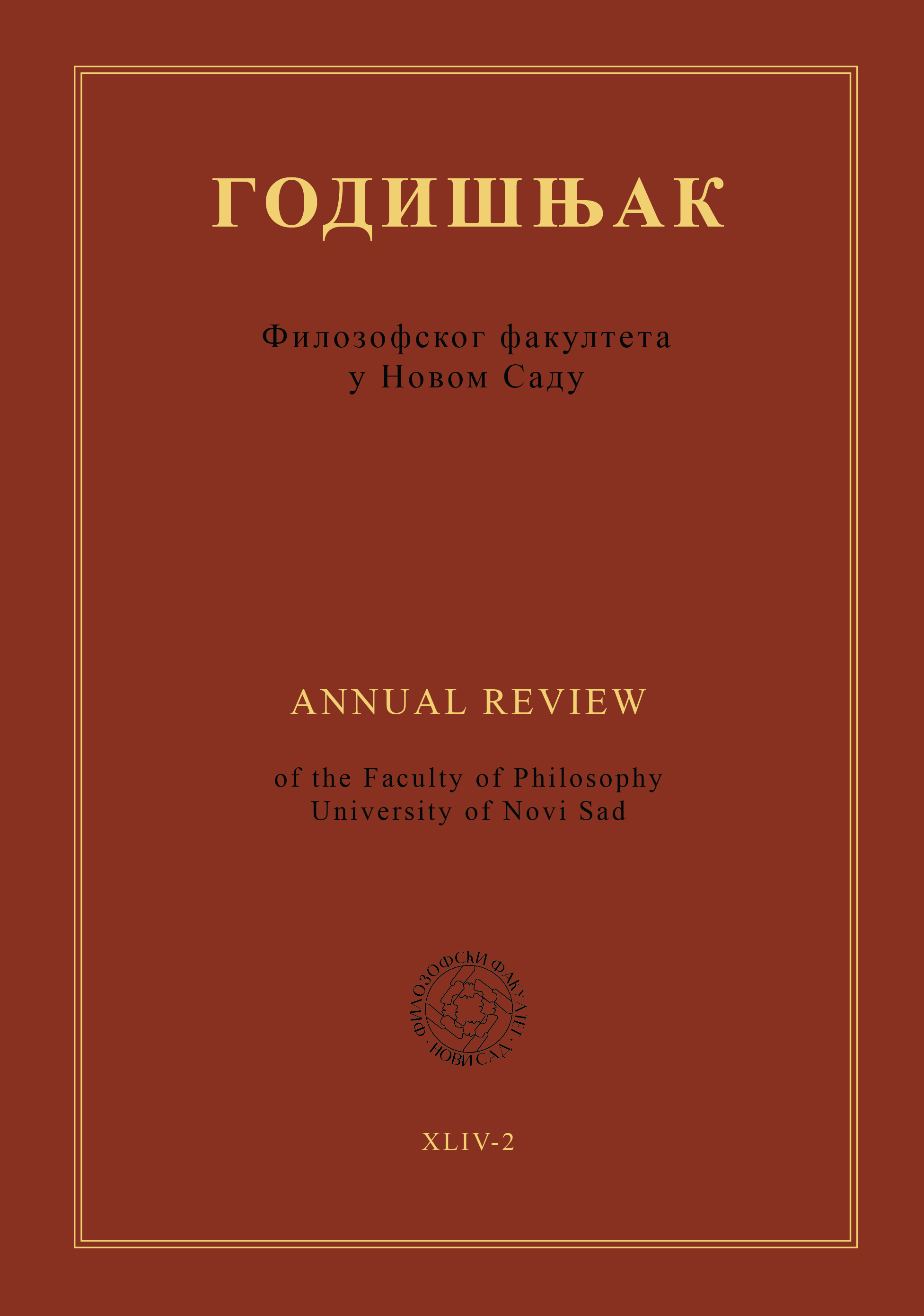THE IMAGE OF A WOMAN IN ALBA DE CÉSPEDES' NOVEL NESSUNO TORNA INDIETRO
Main Article Content
Abstract
The paper is the result of a literary study focused on Italian-Cuban writer and journalist Alba de Céspedes’ novel Nessuno torna indietro (There's No Turning Back, 1938), which chronicles different stories of eight women students residing in a boarding house (Grimald in Rome) between 1934 and 1936. It is with this work that Alba de Céspedes, one of the most important figures in Italy’s literary and cultural ambit in the post-war period, made the first important step in entering the literary scene. The book, which focuses on the condition of women as a topic that takes center stage in de Céspedes’ writing, was immensely popular and saw translations into eighteen languages worldwide, but it also became the subject of censorship. In this paper, after preliminary considerations dealing with the genesis of the novel and its reception in Italy and abroad, we will examine the character of Silvia, which stands in sharp contrast to the Fascist model of a woman as an exemplary wife and mother. This way of portraying the protagonists of Nessuno torna indietro shows the writer’s disagreement with the accepted view, the status of women, and rules promoted by the Fascist ideology. One of the purposes of this paper is also to introduce the writer’s work and cultural practice to the Balkan region and offer the basis for further discussion on the subject.
Downloads
Metrics
No metrics found.
Article Details
References
Bonsaver, G. (2013). Mussolini censore. Storie di letteratura, dissenso e ipocrisia. Bari: Laterza.
Cardone, L. (2012). Pelle e pellicola. La scrittura femminile e lo sguardo in Nessuno torna indietro di Alba de Céspedes e Alessandro Blasetti. In: Chemotti, S. (a cura di) (2012). Le graphie della cicogna. La scrittura delle donne come ri-velazione. Padova: Il Poligrafo. 289-332.
Carroli, P. (1993). Esperienza e narrazione nella scrittura di Alba de Céspedes. Ravenna: Longo Editore.
Dagan, K. (2013). Kratka istorija Italije. Beograd: Zavod za udžbenike.
De Céspedes, A. (1938). Nessuno torna indietro. Milano: Mondadori.
De Céspedes, A. (1941a). Nikome nema povratka, I dio. Preveo A. Velzek. Zagreb: Nakladni zavod Ante Velzek.
De Céspedes, A. (1941b). Nikome nema povratka, II dio. Preveo A. Velzek. Zagreb: Nakladni zavod Ante Velzek.
De Céspedes, A. (2011). Romanzi. Milano: Mondadori.
De Crescenzio, L. (2015), La necessità della scrittura. Alba de Céspedes tra Radio Bari e «Mercurio» (1943-1948). Bari: Stilo.
De Grazia, V. (1996). Il patriarcato fascista: come Mussolini governò le donne italiane (1922-1940). In: Thébaud, F. (a cura di) (1996). Storia delle donne. Il Novecento. Bari: Laterza. 141-175.
De Grazia, V.– Luzzatto, S. (a cura di) (2002). Dizionario del fascismo I. A-K. Torino: Einaudi.
De Grazia, V.– Luzzatto, S. (a cura di) (2003). Dizionario del fascismo II. L-Z. Torino: Einaudi.
De Grazia, V. (2007). Le donne nel regime fascista. Venezia: Marsilio.
Di Nicola, L. (2012). Intellettuali italiane del Novecento. Una storia discontinua. Pisa: Pacini Editore.
Di Nicola, L. (2013a). Il canone inverso. I classici italiani del Novecento all’estero. In: Di Nicola L.–Schwartz C. (a cura di) (2013a). Libri in viaggio. Classici italiani in Svezia. Stoccolma: Acta Universitatis Stockholmiensis. 64-88.
Di Nicola, L. (2013b). Mercurio. Storia di una rivista 1944-1948. Milano: Il Saggiatore.
Monti G. (2008). Look Who’s Talking: Nessuno torna indietro, From Alba de Céspedes to Alessandro Blasetti. In: De Pau D.–Torello G. (a cura di) (2008). Watching Pages, Reading Pictures: Cinema and Modern Literature in Italy. Cambridge: Cambridge Scholars P. 191-211.
Pellicano, P. (gennaio 1941). Potenze occulte. Vita italiana. pp. 83-85.
Petrignani, S. (1984). Alba de Céspedes. La Pasionaria. Le signore della scrittura. Milano: La tartaruga.
Vitti-Alexander, M. R. (1991). Il passaggio del ponte: l’evoluzione del personaggio femminile di Alba de Céspedes. Campi immaginabili, 3, 103–112.
Zancan, M. (a cura di) (2001). Scrittrici e intellettuali del Novecento. 2. Alba de Céspedes. Milano: Fondazione Arnoldo e Alberto Mondadori.
Zancan, M. (a cura di) (2005). Alba de Céspedes. Milano: Il Saggiatore, Fondazione Arnoldo e Alberto Mondadori.
Zancan, M. (2011). Nessuno torna indietro. In: De Céspedes, A. (2011). Romanzi. Milano: Mondadori. 1611-1629.





